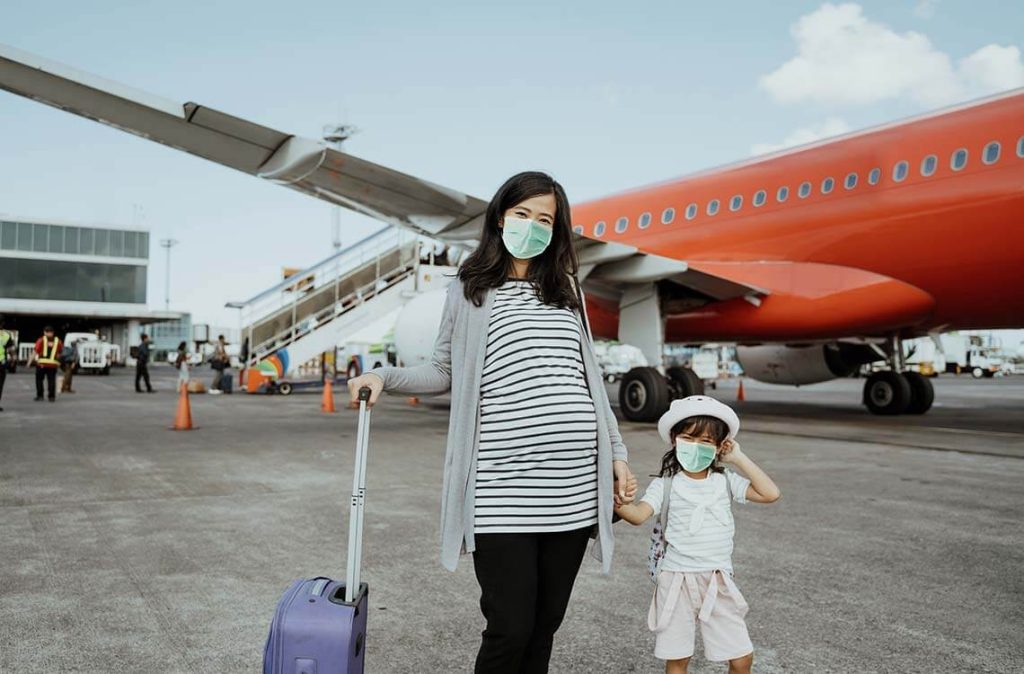Travelling to new destinations is an exciting experience. But it’s important to be aware of potential health risks that come with travelling.
Mosquitos and motion sickness are just the tip of the iceberg when it comes to the dangers that travelling can have on your health.
A fun vacation overseas can quickly become a waking nightmare if you (or your loved ones) fall victim to a deadly infection.
Being informed about potential health hazards and taking necessary precautions can help prevent illness and injury while travelling.
In this article, we’ll discuss seven health dangers to watch out for when travelling.
7 Health Dangers to Watch Out for When Travelling
Foodborne Illnesses
Foodborne illnesses are common among travelers, especially in countries with poor food safety standards.
To avoid getting sick from contaminated food, stick to well-cooked meals, avoid raw or undercooked meat and seafood, and be cautious with street food.
Also, avoid tap water and ice cubes made from tap water, as they can contain harmful bacteria and viruses.
Traveler’s diarrhea is a type of foodborne illness and one of the most common ones. It will be discussed later in the article.
Mosquito-Borne Diseases
Mosquitoes are notorious for spreading diseases like malaria, dengue fever, and Zika virus.
If you’re travelling to a region with a high risk of mosquito-borne diseases, protect yourself by wearing long-sleeved shirts and pants, using insect repellent, and sleeping under mosquito nets.
Unfortunately, you won’t need to travel very far or even outside the country to be at risk for mosquito-borne diseases. Indonesia, Thailand, and yes, Malaysia are notorious high-risk places.
Sunburn and Heat Exhaustion
Sunburn and heat exhaustion are common health risks when travelling to hot and sunny destinations.
What’s so dangerous about heat exhaustion is that it can cause heat stroke, which can be fatal without immediate medical attention.
To avoid getting sunburnt, wear sunscreen with an SPF of at least 30 and limit your time in the sun during peak hours.
To prevent heat exhaustion, stay hydrated by drinking plenty of water and avoid overexerting yourself in the heat.
Motion Sickness
Motion sickness is the worst. It can quickly put a damper on your vacation mood.
Symptoms can range from nausea to headaches, and even to vomiting and cold sweats. If you’re prone to motion sickness, travelling by car, plane, or boat can be a challenge.
To alleviate the symptoms of motion sickness, try sitting in the front seat of a car or plane, facing forward on a boat, and avoiding reading or using electronic devices during travel.
Some people have had great success preventing motion sickness by sleeping, or shutting their eyes.
Altitude Sickness
Altitude sickness can occur when travelling to high-altitude destinations, such as mountainous regions or high-altitude cities like Cusco, Peru.
Symptoms of altitude sickness include headaches, dizziness, and shortness of breath.
To prevent altitude sickness, take time to acclimate to the altitude by gradually increasing your altitude over a few days, staying well-hydrated, and avoiding alcohol and tobacco.
While rare in flyers, you can still get a mild form of altitude sickness from riding on an airplane.
Traveler’s Diarrhea
Traveler’s diarrhea is a common health risk when travelling to developing countries. Symptoms include diarrhea, stomach cramps, and nausea.
To avoid traveler’s diarrhea, stick to bottled water, avoid uncooked fruits and vegetables, and practice good hand hygiene.
This can be hard when you’re travelling for gastrotourism. Sampling local cuisines and dishes can be difficult if you’re watching what you eat. So opt for clean restaurant meals instead of street food, just to be safe.
Sexually Transmitted Infections
Travelling can increase the risk of contracting sexually transmitted infections (STIs), especially if you engage in risky sexual behavior.
To protect yourself from STIs, use condoms and practice safe sex, and consider getting tested for STIs before and after your trip.
While not a problem for monogamous couples, you can still get STDs and STIs without having sex.
Some common culprits include infected bed sheets, towels and even upholstery. So be careful when staying at hotels and other temporary accommodations.
Stay Healthy when Travelling
Travelling to other countries can offer a chance to experience different cultures, foods, and environments, but it also comes with potential health risks that may be different from your home country.
These risks could include exposure to diseases that are not common where you live, such as malaria or yellow fever, or exposure to contaminated food or water that could cause gastrointestinal illnesses.
However, by taking preventative measures such as getting vaccinated, practicing good hygiene, and being mindful of what you eat and drink, you can significantly reduce the chances of getting sick or injured while travelling.
By taking these precautions, you can focus on enjoying your travels and creating unforgettable memories.
Disclaimer: The information provided in this article is for informational purposes only and should not be considered as medical advice from Motherhood. For any health-related concerns, it is advisable to consult with a qualified healthcare professional or medical practitioner.
For more insightful stories and fun recipes, stay tuned to Motherhood Story!
